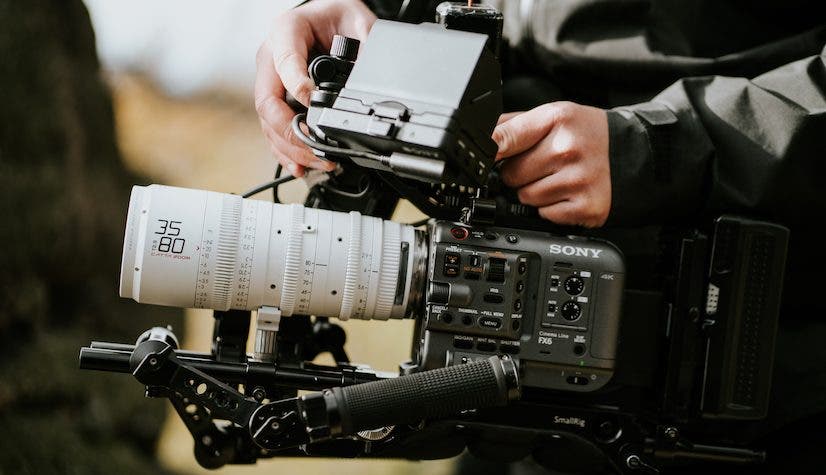A 6-week intensive cinematographer course is designed to give you hands-on experience and general introduction to the art of cinematography. The course is aimed at candidates with little or no experience, as well as those who wish to deepen their skills. The main focus of this intensive course is cinematography, however, screenwriting, directing, editing and sound are also covered.
Film Institute tutors will take you from story to idea to finished film. Each student shoots their own short film while being part of the other student’s project team. The course is taught in English in small groups of 10 to 15 people.
Cinematographic equipment
On our campus is a full service public rental house with film cameras, cinema lenses, grips, lighting equipment and many other tools.
During the Film Institute, you will have access to all available filming equipment. For editing, you can use a professional editing room with Da Vinci software.
Entry requirements
- Age: Minimum age to enter the course is 15 years old
- Training: no previous experience is required
- English: communicative level
Weekly schedule
Week 1
- Script writing (from idea to final script)
- Production
- Direction
Week 2
- Cinematography – Camera
- Cinematography – Lights
- Cinematography – Grip
Week 3
- Cinematography – Camera
- Cinematography – Lights
- Cinematography – Grip
Week 4
- Drone cinematography
- Realization of underwater films
- Action scenes Filming
Week 5
- Film pre-production
- Filming of the final film
- Editing
Week 6
- Editing of the final film
- Screening of films to industry professionals
Study modules
Cinematography – Camera
- History of cinematography, camera and cinema lens
- Lens working principle and cinema lens types
- Anatomy of industry standard cameras
- In Camera – Sony, Arri, Red Worklow and Setting
- Security Protocol and Responsibilities of the Film Crew
Cinematography – Lighting
- Principle of operation of different types of lights
- Anatomy and protocol of the different types of lights
- Safety protocol and responsibilities of the lighting team
- Shape the light for a particular style of lighting and visual tone
- Initiation and equipment protocol for gripping techniques
Sound recording
- On-site sound recording
- Microphones
- Timecode
- Front line maintenance
- Location mixers
The basics of cinema
- Script writing
- Production
- Direction
- Editing
Realization of underwater films
- Underwater Cinema Theory
- Underwater filming equipment
- Shooting in a swimming pool
- Editing and grading underwater images
Action scene shooting
- Action Scene Safety
- Specificities of preparation for filming
- stunt coordination
- Performing stunt shoots
- Editing action scenes
- Special Effects (SFX)
Drone cinematography
- Drone operation
Film shooting
- Shot-lists
- Production of the final short film (shoot your own film and be part of the team for the shooting of other films of your classmates)
What’s included
We understand that by choosing to study with us, you are making a financial commitment. We want to make sure you understand exactly what your tuition will cover when you decide to become a Film Institute student.
- Conferences & workshops
- Filming equipment
- Essential production cost for your final film
- Build your own professional network
- Karlovy Vary Film Festival (accommodation and industry pass)
Not included
- Plane ticket
- Visa fees and health insurance
- Living expenses (housing, food, transportation)
What to bring
We recommend that all new Film Institutes purchase their own personal laptops for self-guided learning and post-production practice. Our goal is to teach students how to use their own computers for high quality results. Make sure to choose a laptop that meets the recommended minimum specs. However, for tasks requiring specialized software tools, you will also be allowed to use Film Institute hardware.
| Making up | Minimum required | Recommended requirement |
| CPU | Intel Core i7 or AMD Ryzen | 7Intel Core i9 ou AMD Ryzen 9 |
| RAM | 16 GB | 32 Go+ |
| GPU | 4 Go of VRAM | 8 Go+ VRAM |
| Media storage | SSD or RAID | SSD, Direct Attached RAID or NAD RAID (10 GbE) |


